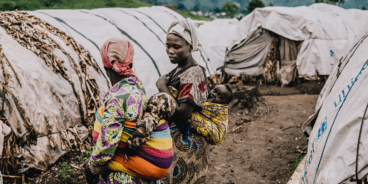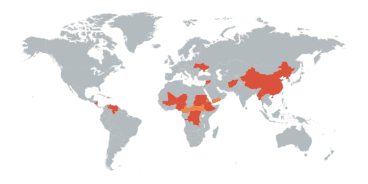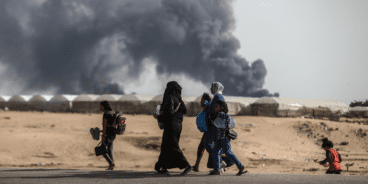
Statement on the Third Anniversary of the Start of the Syrian Conflict
Three years since the start of the Syrian crisis, crimes against humanity and war crimes continue to be perpetrated by the Syrian government against civilians. Some armed opposition groups are also committing war crimes and other serious human rights violations. Despite the display of unity within the United Nations (UN) Security Council on 22 February in adopting Resolution 2139, aimed at ensuring humanitarian access to all parts of the country, civilians remain under siege and food continues to be used as a weapon of war.
In March 2013 the death toll in Syria’s civil war stood at 70,000, ten times that of the previous March. Now, one year later, that number has doubled, and will continue to rise as civilian lives are endangered not only by ongoing aerial bombardments, but also by the denial of desperately needed aid. With more than 140,000 people dead, 2.5 million taking refuge in neighboring countries, 6.5 million internally displaced and at least 3.3 million in areas inaccessible to humanitarian assistance, the only certainty is that without urgent international action more innocent people will die.
The Responsibility to Protect was unanimously adopted at the UN World Summit in 2005 with the aim to prevent and protect populations from mass atrocity crimes. While the Syrian government is manifestly unwilling to uphold its Responsibility to Protect, the UN Security Council has also failed in its responsibilities. International action aimed at halting the bloodshed has been stifled by three double-vetoes and has consistently lagged behind the ever-worsening dynamics of the civil war.
The recent Geneva II conference, aimed at ending the violence and establishing a transitional governing body, has completed two rounds of negotiations without progress. With external forces arming and abetting each side, neither the government nor opposition groups feel significant diplomatic pressure to negotiate an end to the conflict.
Syrians cannot wait any longer. In keeping with the Responsibility to Protect, we urge the UN Security Council to:
1. Demand full implementation by all parties in Syria of Resolution 2139, including the cessation of attacks on civilians, lifting of sieges and facilitation of immediate humanitarian access to all areas of the country;
2. Authorize targeted sanctions against any government and non-state actors who continue to act in defiance of Resolution 2139 and are responsible for mass atrocity crimes;
3. Impose an arms embargo on Syria;
4. Refer the Syrian situation to the International Criminal Court for investigation and hold accountable those responsible for mass atrocity crimes;
5. Increase efforts to find a political solution to the conflict, including by engaging with all relevant regional powers.
Given the detrimental effects of UN Security Council division and inaction on Syria, we urge the Permanent Members of the Council to commit to refrain from using the veto in any case where crimes against humanity, war crimes, ethnic cleansing or genocide are occurring.
Related Content


